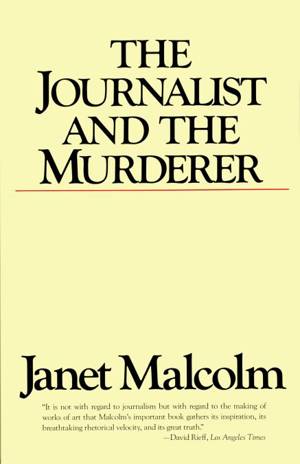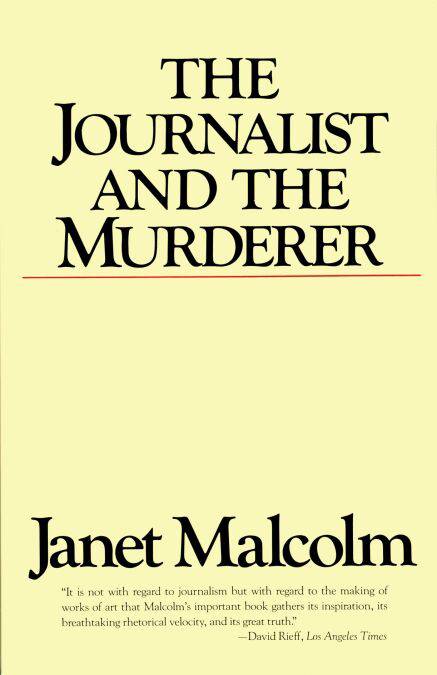
- Afhalen na 1 uur in een winkel met voorraad
- Gratis thuislevering in België vanaf € 30
- Ruim aanbod met 7 miljoen producten
- Afhalen na 1 uur in een winkel met voorraad
- Gratis thuislevering in België vanaf € 30
- Ruim aanbod met 7 miljoen producten
Zoeken
Omschrijving
Named one of the 100 Best Nonfiction Books by The Modern Library and The Guardian • With surgical precision, Janet Malcolm dissects the famous case of journalist Joe McGinniss and murderer Jeffrey MacDonald. A riveting exploration of the uneasy dynamic between writers and their subjects and a must-read for anyone intrigued by journalism, the complexities of human nature, and true crime
Malcolm deftly analyzes the real-life lawsuit of Jeffrey MacDonald, a convicted murderer, against Joe McGinniss, the author of Fatal Vision. At the heart of this masterfully crafted narrative is McGinniss's controversial portrayal of MacDonald, a former Green Beret convicted of murdering his pregnant wife and two young daughters. While writing the true crime book Fatal Vision, McGinniss ingratiated himself with MacDonald under the guise of supporting his innocence, only to portray him as guilty in the final publication. The resulting libel case put McGinniss's methods on trial, sparking a gripping examination of the ethics governing the writer-subject covenant.
Through probing interviews with the key players - the principals, their lawyers, members of the jury, and expert witnesses - Malcolm provides an atmospheric retelling of the sensational trial. But her true subject is the treacherous territory writers must navigate when trying to objectively chronicle the lives of others.
With piercing self-awareness, Malcolm examines her own role and motivations, laying bare the inherent conflicts and power dynamics that arise when a journalist pursues a story. Her candid, rueful reflections transform a seemingly straightforward work of reportage into a profound exploration of journalistic ethics and the limits of factual truth.
Malcolm deftly analyzes the real-life lawsuit of Jeffrey MacDonald, a convicted murderer, against Joe McGinniss, the author of Fatal Vision. At the heart of this masterfully crafted narrative is McGinniss's controversial portrayal of MacDonald, a former Green Beret convicted of murdering his pregnant wife and two young daughters. While writing the true crime book Fatal Vision, McGinniss ingratiated himself with MacDonald under the guise of supporting his innocence, only to portray him as guilty in the final publication. The resulting libel case put McGinniss's methods on trial, sparking a gripping examination of the ethics governing the writer-subject covenant.
Through probing interviews with the key players - the principals, their lawyers, members of the jury, and expert witnesses - Malcolm provides an atmospheric retelling of the sensational trial. But her true subject is the treacherous territory writers must navigate when trying to objectively chronicle the lives of others.
With piercing self-awareness, Malcolm examines her own role and motivations, laying bare the inherent conflicts and power dynamics that arise when a journalist pursues a story. Her candid, rueful reflections transform a seemingly straightforward work of reportage into a profound exploration of journalistic ethics and the limits of factual truth.
Specificaties
Betrokkenen
- Auteur(s):
- Uitgeverij:
Inhoud
- Aantal bladzijden:
- 176
- Taal:
- Engels
Eigenschappen
- Productcode (EAN):
- 9780307797872
- Verschijningsdatum:
- 21/06/2011
- Uitvoering:
- E-book
- Beveiligd met:
- Adobe DRM
- Formaat:
- ePub

Alleen bij Standaard Boekhandel
+ 5 punten op je klantenkaart van Standaard Boekhandel
Beoordelingen
We publiceren alleen reviews die voldoen aan de voorwaarden voor reviews. Bekijk onze voorwaarden voor reviews.








